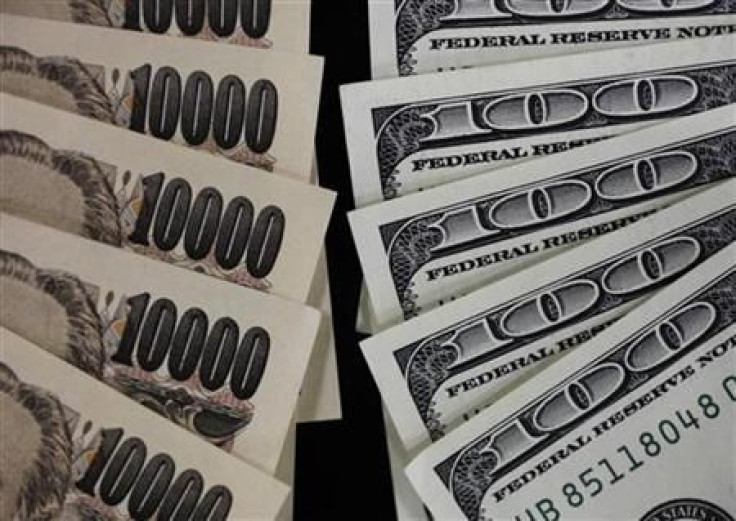Dollar Slump Could Worsen With Bernanke QE3
ANALYSIS

Investors are agonizing over the prospect of another round of quantitative easing that could come out of Federal Reserve Chairman Ben Bernanke's Jackson Hole summit later this week.
Will he or won't he? The market awaits the possibility of a third round of paper printing arising from Jackson Hole -- and the price of the dollar is showing just how anxious those investors are.
The feeling that the Fed's printing presses are running at high speed and the fear that inflation will once again gain traction are detracting from the appeal of the dollar, not to mention the lack of appeal from the perennial promise of a near-zero yield, analyst Andrew Wilkinson wrote in his FuturesMag.com column. The dollar's malaise could worsen during the week in anticipation of a fresh Fed rescue package.
The S&P ratings downgrade for the United States along with Europe's sovereign debt crisis has made for a potent coupling. Unless Bernanke dismisses the prospect of another round of quantitative easing, Wilkinson says the dollar is likely to remain on the defensive.
Then there's the euro -- it's been advancing on hopes that the potential American stimulus would deflate the dollar further.
What does seem to be maintaining the single currency is the recent decision by the European Central Bank to wade back in to the secondary government bond market to purchase Spanish and Italian issues. That move has soothed investors' fears and put a spring in to the step of the euro, Wilkinson wrote.
Germany's central bank, the Bundesbank, said that the European Union's recent decisions could wear down fiscal and political union, neutering the ECB's inflation-fighting ability and leaving it unable to exercise tighter monetary policy.
In Japan, the yen reached an all-time high against the dollar at ¥75.95. The market remains nervous that the Bank of Japan is on the edge of intervention, with one official expressing worry over the medium-term damage to the Japanese economy likely to result from a stronger yen, says Wilkinson.
© Copyright IBTimes 2024. All rights reserved.











